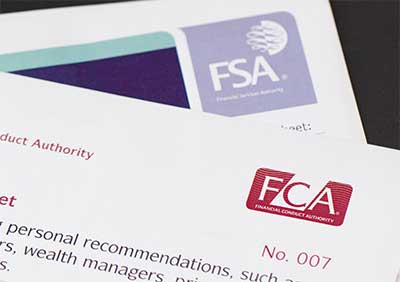On 23rd June 2020, the UK set out its plans to maintain its high regulatory standards for the Financial Services sector after the end of the transition period on 31st December 2020. It set out numerous regulatory reforms at domestic, European and international levels; such as, updates to the UK’s prudential requirements, the maintenance of the soundness of the UK’s capital markets, and the management of future risks.
Updating prudential requirements
The UK Government intends to use its proposed Financial Services Bill to enable a new Investment Firms Prudential Regime (IFPR), and to update the regulation of credit institutions. These include the implementation of the Basel III standards – a global set of standards strengthening capital regulation by imposing requirements on liquid asset holdings and funding stability.
This work will be delegated to the FCA and the PRA. Both regulators will be supervised by an accountability framework, to ensure competitiveness and equivalence.
If you’re a PRA-designated investment firm, you won’t be required to re-authorise as a credit institution when the new IFPR is introduced in Summer 2021 (unlike the equivalence provisions in the EU’s regime).
If you are an FCA-regulated investment firm though, you’ll need to comply with the Fifth Capital Requirements Directive (CRDV) once the new IFPR applies.
That’s because under the EU Withdrawal Agreement, pieces of EU legislation which come into force before 1st January 2021 – like the CRDV and the Bank Recovery and Resolution Directive II (BRRDII) – will also have to be transposed into UK legislation.
CRDV is the fifth in a series of EU Directives imposing certain obligations on firms, such as, minimum capital requirements. The primary focus of CRDV is to combat terrorist financing; it operates by extending elements of the Fourth Capital Requirements Directive and introducing provisions that deal with virtual assets.
The BRRDII updates the EU’s resolution policy and ‘Minimum Requirements for Own Funds and Eligible Liabilities’ (MREL) framework. As the Chancellor Rishi Sunak describes in his Financial Services Update:
“(The) MREL is the minimum amount of equity and debt that a firm must maintain to absorb losses and provide for recapitalisation, in the event of resolution. The purpose of MREL is to ensure that investors and shareholders, and not the taxpayer, absorb losses when a firm fails”.
The Treasury is also considering how to implement EU legislation that comes into force after 31st December 2020. Article 1(17) of BRRDII, for example, does not need to be implemented until 2024. The UK will therefore have discretion as to whether it is transposed into UK law, or not.
Maintaining sound capital markets
The UK will maintain its existing industry-led settlement discipline framework, rather than implementing the EU’s new settlement discipline regime, which is set to apply to other European nations in February 2021. This decision was taken to prevent any failures in the ‘Securities Settlement Systems’ – the entity’s that enable securities to be transferred and settled by book entry.
This approach is not surprising given that a key argument for Brexit was to preserve our national parliamentary and legislative sovereignty. The UK Government believes the country already has sufficient frameworks and processes in place to comply with international standards.
The Treasury is now expected to provide further detail on upcoming legislation, including:
- amendments to the Benchmarks Regulation, ensuring continued market access to third country benchmarks until 2025;
- amendments to the Market Abuse Regulation;
- improvements to the functioning of the PRIIPs regime to address the risk of consumer harm; and
- completion of the implementation of the European Market Infrastructure Regulation.
Managing future risks
The transition from London Inter-bank Offered Rate (LIBOR) to Sterling Overnight Index Average (SONIA) poses numerous risks to financial markets in the UK. One of the key issues are those legacy contracts that are unable to transition before LIBOR ceases (most likely by 2022).
The Government has therefore announced that the Financial Services Bill will be used to introduce amendments to the Benchmarks Regulation 2016/1011, to ensure that the FCA’s powers are sufficient to manage an orderly transition from LIBOR.
For further reading, you’ll find the full ministerial statement on the LIBOR transition here, and the full ministerial statement on the Financial Services Update here.
If you have any questions, or would like to know how we can assist in Brexit-planning for your business, please do get in touch.




